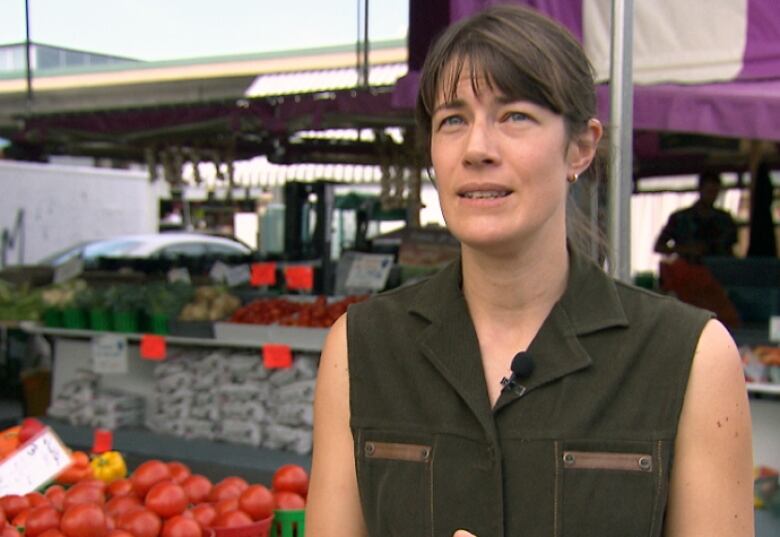Migrant workers further disenfranchised by Bill 8, critics say
Proposed amendment to Quebec Labour Code removes right to meet at workplace

While most of Quebec's foreignagricultural workers manages to make a good living, some describe their working conditions as closer to slavery and say they have nowhere to turn for help.
- Temporary foreign worker dies in freak accident, leaves chilling testimony
- Guatemalan chicken catcher in Quebec alleges abusive work practices
- Temporary foreign workers at risk of abuse, advocates say
About 10 per cent of Quebec's farm workers about8,000 men and womencome from abroad. They'remainly from Mexico, Guatemala and the West Indies.
Eugnie Depatie-Pelletier, an expert in migrant workers' rights, says thecurrent legislation leaves workers high and dry, and the government needs to step in.
She says Bill 8, a proposed amendment to the portion of the Quebec Labour Code onfarm workers, would further disenfranchise foreign workers by taking away their right to unionize.
They [wouldnt] have the right to meet on the workplace where actually often times they are confined to that workplace,Depatie-Pelletiersaid.
Fear of reprisal
Depatie-Pelletier says labour laws dont protect the agricultural industry as a whole and immigration laws, which dictate that workers must be tied to a specific employer, are also problematic because workers can feel forced to accept unsafe conditions.

They work when they are very tired, and this of course leads to illnesses and injuries and sometimes even death.
Depatie-Pelletier says stories like that ofmigrant worker Ivan Guerrero are common. Guerrero describedlong hours, unpaid overtime and limited freedom in a videofilmed last year. InMay, he drowned on the farm where he worked.
Police ruled Guerrero's death an accident.
Depatie-Pelletiersays migrant workers are usually reluctant to speak up for fear of reprisal, and that the only reason his video testimony is now public is because Guerrero died.
"When they face abuse, when they are discriminated against, when they are even sick or injured, they will usually keep silent to make sure they are not fired. Then they would lose the right to work in Canada, she said.
Workers are told they can turn to their country's consulates for support, but Depatie-Pelletier says this is often untrue.
She saidforeign worker programs are very lucrative for participating countries, and that consular staff are therefore reluctant to step in for fear of losing the business arrangement.
What they want to do is to maintain an excellent relationship with employers to make sure that Mexican workers will not be replaced by Guatemalan workers or Honduras workers, she said.
Depatie-Pelletier says the fight will continue for foreign workers and those advocating for them.
Special consultations and public hearings for Bill 8 start this week.












_(720p).jpg)


 OFFICIAL HD MUSIC VIDEO.jpg)
.jpg)



























































































